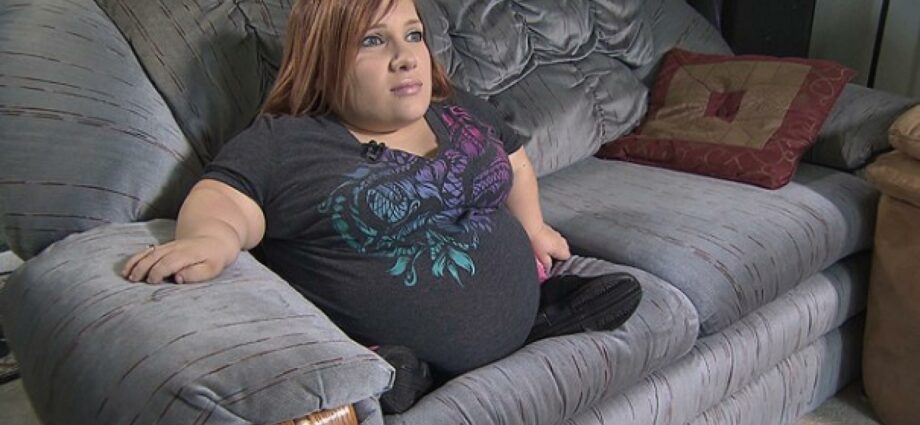“I don’t understand, as soon as I put it down it wakes up and cries,” I told my mother when Jad was born.
“It’s normal, you don’t give him the Tegmat technique,” she replied. She quickly went to get one of her scarves which she folded into a triangle to swaddle her grandson. He automatically calmed down and fell asleep peacefully. Before I gave birth, I ignored this fantastic practice that I adopted for four months.
I left my country at the age of 18 to study biology in Paris where I met my husband, also Moroccan. Being “just as a couple” to wait for a baby is not the norm in Morocco. I missed that family support very much. Fortunately, my mother moved in with us for two months when Jad was born. What a great help! I was resting and she was taking care of the house. She would get up when Jad woke up at night, even though I was breastfeeding, and with each cry she would ask if there was anything she could do. My husband didn’t mind, these are our customs. He was sleeping, it didn’t change his habits! But today, mentalities are gradually changing and dads are starting to change diapers, get behind the stroller or even babysit the little ones while the mothers have a hammam with their girlfriends. Women work as much as men and now impose themselves more. They return to their jobs after three months of maternity leave. It is difficult to extend it, unlike the previous generation who stayed with the children for at least a year. The nurseries are still too few and the grandmothers take care of the little ones. Many families, even from the middle social class, employ a home-based nanny, who handles the children and the household chores.
We generally live close to each other, which allows the young mother to take advantage of her status as a nfissa, the one who breathes life. She is pampered like a princess. When she comes back from the maternity ward, she is greeted to the sound of the “youyous” of the women of the family who have prepared sweet and sweet dishes for her such as sellou, a cake made from roasted almonds, wheat flour, seeds. of sesame, anise and fennel. It is said to strengthen the mother. It’s really festive! My mother, my mother-in-law and my husband’s cousin were able to come when I was released from the hospital. As tradition dictates, mom changed all the sheets on my bed so that I could sleep in a new set with typical Moroccan embroidery from Rabat or Fez. We keep them all our life. Jad also received his birth sheets from his grandma.
Tips and remedies
When Jad coughs, I put half an onion next to his head and I prepare a turnip syrup with honey: we dig the turnip and fill it with honey. It is left to macerate overnight in the refrigerator. The turnip makes juice and this forms a syrup which helps clear the airways and has an expectorant effect. Against colic, we infuse verbena leaves. We give 1-2 tsp. coffee per day. From 1 year old, the little one learns to eat spicy tagines with the family.
Three days after her return, it is again all the women in her entourage who meet at the young woman’s home. They eat a typical dish, rfissa, made with Moroccan pancakes (m’semen) of spicy chicken with fenugreek (halba), ginger, saffron, accompanied by lentils. Thanks to these ingredients, lactation is better. It is also an opportunity to discuss motherhood, to encourage the young mother, to support her. It is a real emotional support. My mother and mother-in-law made it for me and I really enjoyed it.
Giving birth in France allowed me to choose natural methods. There are groups of Moroccan mothers living around the world on social networks who follow this trend. They encourage Moroccan women to use natural medicine, breastfeeding and vaginal birth. With the girls in the group, we try to wait until the fever of our little ones is above 38 ° C to give something or we favor nose washing, for example. We are the Moroccan “super moms”!
I find that the doctors in Morocco are very “medicine”. Moroccans keep their traditions, which contrasts with the increasingly modern medical system which too easily offers cesarean sections or powdered milk. My friends at Casa prefer private clinics, for which they pay to avoid public hospitals that do not have a good reputation. The first two days after birth is the parade of family and friends to the clinic. It’s happy, but exhausting too. My mother, as in the country, had installed the famous “birth buffet” on which she had placed cakes and gifts for visitors and medical personnel. I was happy to have a bit of there at the French maternity!










